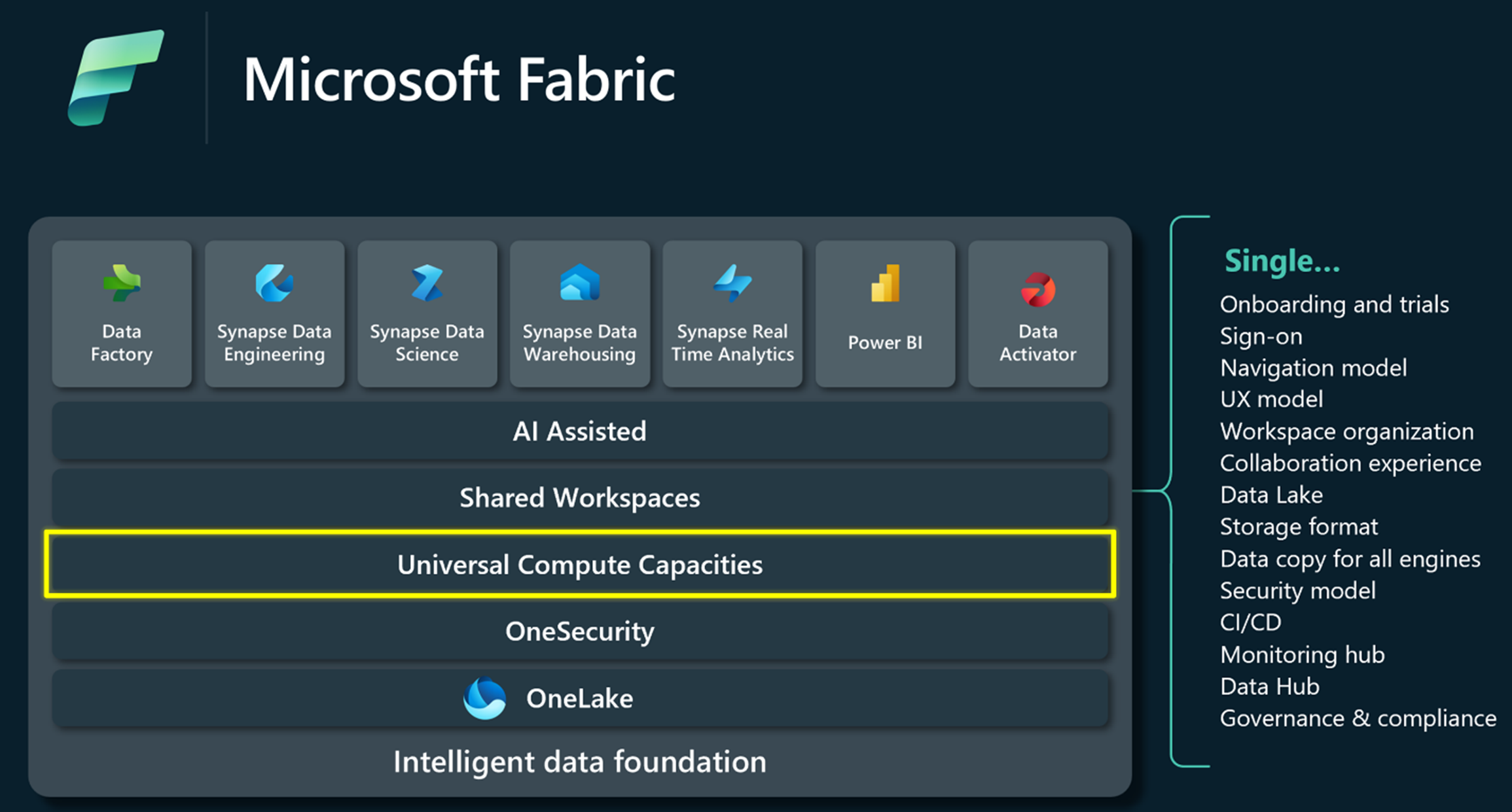Data Factory pricing in Microsoft Fabric
Data Factory in Microsoft Fabric provides serverless and elastic data integration service capabilities built for cloud scale. There's no fixed-size compute power that you need to plan for peak load; rather you need to specify which operations to perform while authoring pipelines and dataflows, which translates into an amount of Fabric Capacity Units consumed, that you can further track using the Microsoft Fabric Capacity Metrics app to plan and manage your consumption metrics. This allows you to design the ETL processes in a much more scalable manner. In addition, Data Factory, like other Fabric experiences, is billed on a consumption-based plan, which means you only pay for what you use.
Microsoft Fabric Capacities
Fabric is a unified data platform that offers shared experiences, architecture, governance, compliance, and billing. Capacities provide the computing power that drives all of these experiences. They offer a simple and unified way to scale resources to meet customer demand and can be easily increased with a SKU upgrade.

You can manage your Fabric Data Factory run costs easily with simplified billing. Additional users don't require any cost management on a per-user basis, and you can save money by planning and committing Fabric capacities for your data integration projects ahead. With the pay-as-you-go option, you can easily scale your capacities up and down to adjust their computing power and pause their capacities when not in use to save costs. Learn more about Fabric capacities and usage billing.
Data Factory pricing meters
Note
We are currently experiencing an issue in Fabric Data Factory capacity unit emissions resulting in very low billing for data pipelines. We expected to have this issue corrected shortly. In the interim, you can expect to see much lower than expected CUs and billing for your data pipelines in Fabric Data Factory.
Whether you’re a citizen or professional developer, Data Factory enables you to develop enterprise-scale data integration solutions with next-generation dataflows and data pipelines. These experiences operate on multiple services with different capacity meters. Data pipelines use Data Orchestration and Data Movement meters, while Dataflow Gen2 uses Standard Compute and High Scale Compute. Additionally, like other Fabric experiences, the common meter for storage consumption is OneLake Storage.
Pricing examples
Here are some example scenarios for pricing of data pipelines:
- Load 1 TB Parquet to a data warehouse
- Load 1 TB Parquet to a data warehouse via staging
- Load 1 TB CSV files to a Lakehouse table
- Load 1 TB CSV files to a Lakehouse files with binary copy
- Load 1 TB Parquet to a Lakehouse table
Here are some pricing examples for Dataflow Gen2:
Related content
الملاحظات
قريبًا: خلال عام 2024، سنتخلص تدريجيًا من GitHub Issues بوصفها آلية إرسال ملاحظات للمحتوى ونستبدلها بنظام ملاحظات جديد. لمزيد من المعلومات، راجع https://aka.ms/ContentUserFeedback.
إرسال الملاحظات وعرضها المتعلقة بـ